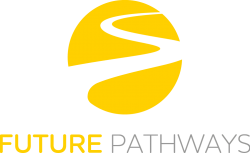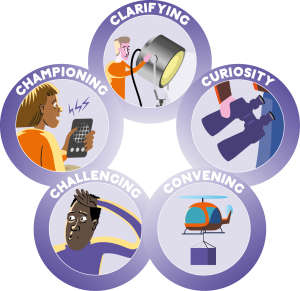The power of collaborative learning and commissioning
Future Pathways recently invited us to facilitate a six-month Action Learning Programme, involving delivery partner organisations and Future Pathways’ team members. Here is the learning that emerged: an example of system leadership in action.
About
 Future Pathways is the first alliance partnership of its kind in Scotland, comprising Health in Mind, Penumbra Mental Health, NHS Greater Glasgow & Clyde, and Scottish Government.
Future Pathways is the first alliance partnership of its kind in Scotland, comprising Health in Mind, Penumbra Mental Health, NHS Greater Glasgow & Clyde, and Scottish Government.
It commissions support for survivors of in-care abuse or neglect by working collaboratively with its network of over 70 delivery partner organisations across the U.K. as well as internationally. It is fully funded by Scottish Government.
Since its inception in 2016, learning about the impact of Future Pathways’ work has been a key priority. To support ongoing learning and development, the alliance was keen to engage with its delivery partner organisations to:
- Explore what works well about how Future Pathways works with delivery partners.
- Explore how Future Pathways and delivery partners can work together to address the barriers survivors face when accessing support.
- Explore how collaborative commissioning can enhance the impact of support for survivors.
- Identify ways to increase collaborative working and stakeholder involvement.
- Inform Future Pathways’ priority areas of development.
- Influence wider system change and improvement.
This is an excellent example of five behaviours of systems leadership as set out in Shine a Light: the Lasting Difference guide to system sustainability, leadership and capacity…
 1. Clarifying: being intentional, facing up to hard decisions
1. Clarifying: being intentional, facing up to hard decisions
Future Pathways’ team members and delivery partners collaboratively explored and clarified roles, responsibilities and shared goals. Programme themes were informed by Future Pathways’ existing impact report findings.
2. Curiosity: making space for uncertainty and creativity
Programme members came with a genuine spirit of curiosity. All members shared their experiences, perspectives and knowledge generously, with honesty, openness and a firm commitment to learning together.
3. Convening: generous leadership across organisational boundaries
The programme created protected time and space for participants to share good practice; better understand barriers; and explore ideas for development.
4. Challenging: courage and persistence
A respectful space was created where group members positively challenged ideas, assumptions and ways of working, and shared ideas for where improvements could be made.
5. Championing: voices for change
Future Pathways shared programme learning with key stakeholders to improve understanding of the benefits and challenges of taking a collaborative approach to commissioning. For example, this learning was shared with Future Pathways’ evaluation partners, Matter of Focus, to shape impact reporting.
Learning
Programme discussions generated a wealth of learning about the benefits of Future Pathways’ collaborative approach to commissioning, including:
- Increasing trust and clarity
- Improving choice and flexibility
- Ensuring outcomes-focused support
- Building community connections
- Working in a trauma-informed way
- Creating network of support and learning
This learning is valuable not only to Future Pathways’ future development, but also to wider system stakeholders involved in the provision of support to survivors and/or collaborative approaches to commissioning.
Reflecting on the programme Flora Henderson from Future Pathways notes:
‘This programme has given us fresh insights into the impact, benefits and challenges of Future Pathways’ approach to collaborative commissioning – for our team members, for our delivery partners, and, most importantly, for the people we support. At the heart of our approach is a deep curiosity about why something is working – or not. Thanks to our work with the Lasting Difference, we now have ‘real-time’ learning from a diverse group of our stakeholders about what helps this approach work in practice, as well as new ideas for future development. We know that shaping the system starts with individual organisations, and we’re delighted to have had the opportunity to work collaboratively with some of our hugely experienced delivery partners. Together, we are shining a light on the importance of organisational relationships and the difference this makes to someone’s experience of support.’
Jen Curran from the Lasting Difference added:
‘As programme facilitator I was struck by the alignment between Future Pathways’ collaborative approach to commissioning and the five key principles of trauma-informed practice[1], not just as it relates to support for survivors, but more broadly in the commissioning relationships between Future Pathways and its delivery partners. Learning from the programme highlighted that Future Pathways approach to commissioning is more than transactional. The relational approach taken allows all parties to build trust, offer choice, fully utilise their strengths, skills and experience, and share power. As one programme member noted, it is more than money, it is the philosophy of empowerment and collaboration embodied in Future Pathways’ approach that is key.’
Resources
Find out more about Future Pathways’ work here: https://future-pathways.co.uk/
Interested in how your organisation could build system capacity – download Shine a Light!
A websearch for ‘alliance contracting’ will tell you more, or visit https://lhalliances.org.uk/what-is-alliancing/
[1] Trauma Informed Practice: A Toolkit for Scotland, Scottish Government
